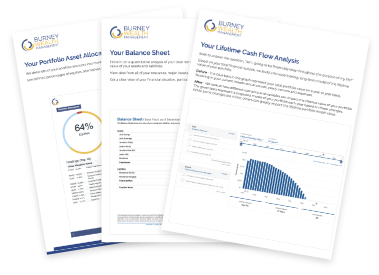What Can We Learn from the Headlines?

When in the midst of a stock market selloff I like to go back and read the headlines from recent market corrections. There are many measured, reasonable takes but headlines exist to grab attention and often do a good job describing what it felt like to be in the middle of the selloff.
In August 2015, oil prices were cratering and companies were in the middle a protracted earnings recession. It didn’t seem like the fall in corporate earnings was going to reverse any time soon and no one knew if the Federal Reserve was about to start pumping the brakes on the economy. The fall in stock prices felt justified.

Stocks are up 33% since.
In January of 2016, a second market correction in as many quarters spawned ominous observations – “investors have started the new year in panic mode” – and dire predictions – “this has all the earmarks of the beginning of a significant stock market correction. Many would argue it’s the beginning of a bear market.”

A bear market it was not as stocks rallied 35%.
Brexit was sure to throw the Eurozone into crisis as one of Europe’s largest economies withdrew from the E.U. A snowball effect seemed possible, even likely, as other countries were to hold referendums similar to the one in the U.K, including France. Who knew what kind of far reaching negative economic impacts this would bring?

Now, the Eurozone is doing just fine, even growing, and the 900 point drop in the Dow recovered before July was over.
It was hard not to get accustomed to 2017’s unprecedented smooth ride in stocks. It is only human to recall the most recent events more easily and begin to forget that the average mid-year drop in the S&P 500 is 13.8%. The 7.8% selloff in the index over the past 6 days is much more normal than, say, stocks being less volatile than bonds for an entire year.
Still, you would be led to believe by headlines and all-caps CNBC push notifications that we just went through some historic event.

The most head-scratching part of this selloff is there doesn’t seem to be some obvious storyline for why. There is no earnings recession, oil prices aren’t cratering, new countries aren’t breaking away from the EU. In fact, the news is good as every major world economy is growing, companies are posting excellent earnings and the US economy continues to add jobs while workers are finally seeing wage gains.
But the stock market is not the economy and this last point serves as a great reminder. The US economy is seeing positive news and, for investors, it is being viewed as potentially bad news as higher wages could lead to higher inflation which could lead to a more hawkish Fed that more aggressively pursues interest rate increases. Stocks are lower because the economy is doing too well. How much lower can they go? What will happen next? No one knows as the stock market is driven by emotion in the short-term rather than valuations and fundamentals. For successful investors, it also doesn’t matter because they know it is outside of their control. We all control how we act in the face of a market selloff and the successful ones do nothing.
Organizations like CNBC and CNN Money are hitting their pageview quotas for the month but it is important to keep context in mind. A 508-point drop today is a bad day but nothing like the 23% market crash it was in 1987. Stocks are still up 15% over the past 1-year, even after Monday’s selloff.
We haven’t seen volatility in an unnaturally long time, and while unsettling, this is periodically what the market does. As has always proven the case, maintaining composure is key. Following panics are recoveries and ultimately new highs. Keep the faith!
Burney Company President Lowell Pratt Jr., CFA
How are you doing?
- Are you able to keep your emotions in control, take the long view and stay invested? Great! You are on the right track.
- Do you think the drop in your portfolio is more than you are comfortable handling? Talk to a Burney Wealth Advisor to find out how you should be invested to achieve your goals.
The Burney Company is an SEC-registered investment adviser. Burney Wealth Management is a division of the Burney Company. Registration with the SEC or any state securities authority does not imply that Burney Company or any of its principals or employees possesses a particular level of skill or training in the investment advisory business or any other business. Burney Company does not provide legal, tax, or accounting advice, but offers it through third parties. Before making any financial decisions, clients should consult their legal and/or tax advisors.




